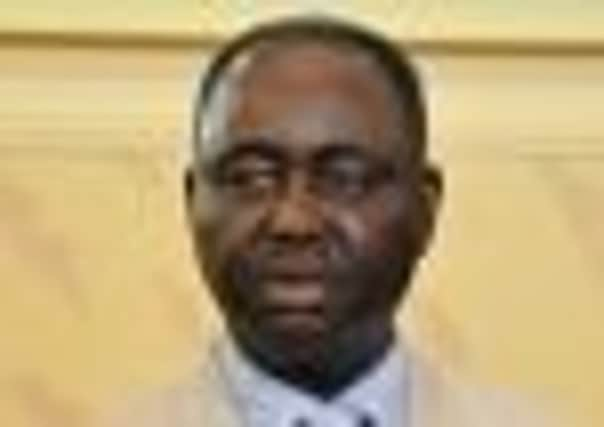Peace plea for rebels from man who led 2003 Central African Republic revolt


Now a decade later Mr Bozizé faces being ousted after rebels seized more than half the country in less than a month, making their way to the edge of the capital.
In a bid to stay in power, he has promised to form a coalition government with rebels. His move to conciliate suggests the rebel groups, who call themselves Seleka, which means alliance in the local Sango language, have left him little option.
Advertisement
Hide AdAdvertisement
Hide AdBut Mr Bozizé has said there was one point not up for negotiation: he must stay in power until his term ends in 2016.
“We can’t destroy the country. I don’t think that a transition is a good solution for the rebels, for Central African Republic or for the international community,” said Cyriaque Gonda, a spokesman for Mr Bozizé’s coalition.
The Seleka fighters yesterday said they had halted their advance on the capital and agreed to start peace talks.
“I have asked our forces not to move their positions starting today because we want to enter talks in [Gabon’s capital] Libreville for a political solution,” said Seleka spokesman Eric Massi, in Paris. News of the rebel halt eased tensions in Bangui, where residents had been stockpiling food and water and staying indoors after dark.
“They say they are no longer going to attack Bangui, and that’s great news for us,” said Jacqueline Loza in the crumbling riverside city. “It is best if all sides go to the negotiating table.”
But mediators for the government and others note the rebels – an alphabet soup of acronyms in French, UFDR, CPJP, FDPC and CPSK – want Mr Bozizé gone. And that’s the only issue the disparate group seems unified on. Seleka is a shaky alliance that lumps together former enemies. In September 2011, fighting between the CPJP and the UFDR left at least 50 people dead in the town of Bria and more than 700 homes destroyed.
“Even if they show unity in the military action, we know that they are politically very disunited, the only thing that holds them together is the opposition to the current president,” said Roland Marchal, a Paris-based expert on Central African Republic. “If they take control of the capital I think that divisions would appear quickly.”
Mr Gonda, who has negotiated for the government with the rebels, says some of them wouldn’t sit together in 2008.
Advertisement
Hide AdAdvertisement
Hide AdMr Bozizé, who seized power while the democratically elected president was abroad, managed to win elections in 2005 but in the years since he has faced multiple low-level rebellions that have shattered security across the northern part of this large but desperately poor country. He won the 2011 election with more than 64 per cent of the vote, though the voting was widely viewed as severely flawed by outside observers.
The most prominent rebel group in Seleka is the UFDR, or Union of Democratic Forces for Unity. Human Rights Watch says the UFDR rebellion “has its roots in the deep marginalisation of the north-east, which is virtually cut off from the rest of the country and almost completely undeveloped.”
The rebels, though, also have included some of Mr Bozizé’s former fighters who helped bring him to power in 2003 but later accused him of failing to properly pay them, among other grievances.
The country remains severely underdeveloped despite its deposits of gold, diamonds and other minerals, including uranium, which is mined by French nuclear energy group Areva in the former colony.